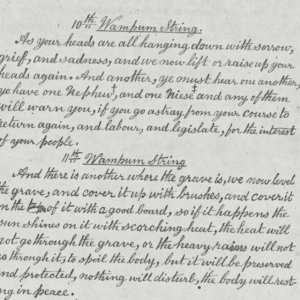A chapter has been brought to a close in the ongoing saga involving McMaster Children’s Hospital’s attempts to force two Six Nations children to undertake chemotherapy against their will.
On Friday, Justice Gethin Edward ruled that McMaster does not have the jurisdiction, or the right, to force a specific treatment upon Native people who have their own healing medicines which sustained them for generations before the white man came.
Critics of the decision argue that it is the purpose or duty of the hospital to protect the children. And at what point does the hospital become liable should a patient die while refusing what western doctors believe is a road that leads to a high percentage of success?
This begs the question, if the word “successful” means extending life a few weeks, months or even a few years, that is one perspective, while others would ask, what quality of life would that mean for the patient – especially if she was traumatized by being abducted and forced into chemotherapy against her will?
While some non-native commentators seem amazed at the decision of the girl and her family not to fall in line with the doctrines of western medicine, those with good memories are not so surprised.
It is a matter of historical record – not “conspiracy theory” – that the Canadian medical establishment repeatedly carried out forced sterilizations of Onkwehon:we women and in the name of western medicine, and that Native children were purposely exposed to tuberculosis and kept in long term states of malnutrition so that “medical science” could study the effects of such deprivation.
There is good reason for Onkwehon:we people to mistrust western medicine, and for sound-minded parents to believe in the traditional healing methods from their own culture. To have that choice superseded by the force of the Canadian state created a question at an altogether different level.
Justice Edward, of First Nations extraction himself, ruled that traditional medical treatment is a legitimate choice for Aboriginal people, which should be respected.
In doing so, Justice Edward upheld the most fundamental principles of the Two Row Wampum. The people of the ship and the canoe are to respect the content of each other’s vessels and are not to attempt to steer each other’s boat – even if they think they know better. The parties are to communicate with each other using the principles of peace, friendship and respect.
Justice Edward’s decision is thus not only a victory for the girl and her family, but an upholding of the most fundamental treaty relationship of all, the Two Row Wampum.
We hope that the day is not far off when respect for Onkwehon:we rights and the Two Row Wampum is so enshrined within mainstream Canadian culture that indigenous people will be able to choose the best combination of indigenous and western medicines for themselves and their families without threat or compulsion.






